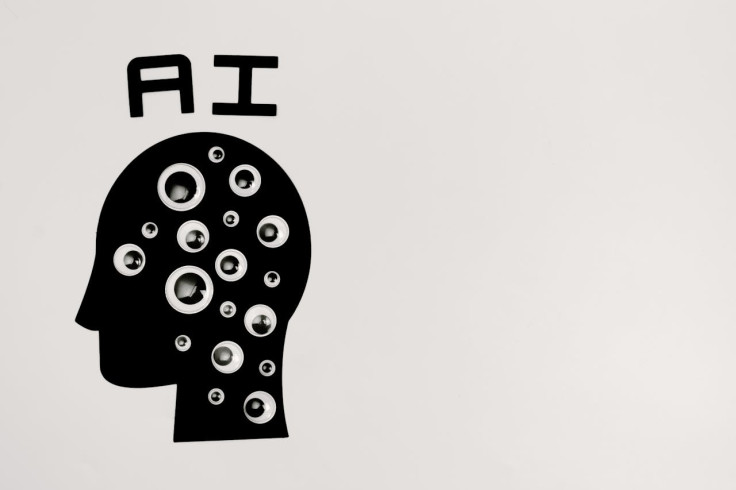From Dream Interpreters to Digital Pet Therapists: 7 Quirky Jobs AI Could Create in Just 5 Years
Business expert Jason Morris notes that as AI takes on repetitive tasks, it creates new opportunities for humans

Here's what nobody talks about when they panic about AI taking over: technology has always been terrible at predicting its own impact on jobs. We thought computers would eliminate accountants. Instead, we got more accountants than ever, plus a whole army of IT support people we never knew we needed.
Now everyone's freaking out about ChatGPT and robots, convinced we're all heading for the unemployment line. But that misses the point entirely. AI isn't just going to replace jobs; it's going to spawn entirely new types of work that would sound absolutely bonkers to us right now.
Picture this: in five years, you might know someone whose business card reads 'Dream Interpreter' or 'Digital Companion Counsellor.' Sounds ridiculous? So did 'Social Media Manager' in 1995.
From deciphering dreams to comforting our digital companions, here are seven unique roles that AI could bring into existence within the next five years.
Unexpected Professions Powered by AI
Jason Morris, a business expert and the CEO of Profit Engine, a specialised, family-run link-building agency, predicts an explosion of new careers over the next five years that will merge human imagination with the capabilities of machines.
'We tend to overestimate what AI can do alone and underestimate the kinds of new opportunities it opens up for people,' says Jason. Focusing more on collaboration than competition with machines, he lists seven surprising roles that could be advertised on job boards by 2030.
Roles You Might Find on a Job Board in 2030
1. Virtual Pet Therapist
Skills required: psychology, counselling, and a deep understanding of human-machine interaction.
As AI-powered robotic pets and digital companions become increasingly lifelike, people are likely to develop emotional attachments. The job of a Virtual Pet Therapist will be to help owners manage the bonds they create with their AI companions, offering guidance for training, addressing behavioural issues, and even assisting them with the "grief" of a pet's software retirement.
'When a family has invested years into an AI pet that remembers birthdays, habits, and moods, replacing it won't just feel like upgrading a phone,' says Jason.
2. Digital Memory Curator
Skills required: archival science, narrative skills, and data ethics.
By 2030, our personal AIs will probably be keeping a record of everything—from conversations and photos to biometric data and emotional states. A Digital Memory Curator will serve as a professional librarian for your personal records, organising and filtering the information to ensure your digital legacy is both accessible and meaningful.
This job combines the sensibilities of an archivist with those of an ethical manager. 'Without human curation, personal AI archives could become overwhelming data dumps. People will want someone who can tell the story of their lives,' notes Jason.
3. Algorithm Bias Auditor
Skills required: statistics, law, ethics, and social science.
AI bias is already a significant concern, and by 2030, it is expected to become a dedicated field of study. Companies, governments, and charities will employ Algorithm Bias Auditors to review AI systems for hidden biases and ensure they treat all individuals fairly and equitably.
'Trust is the currency of the AI economy. If people don't trust the algorithms that shape healthcare, finance, or justice, the entire system breaks down,' warns Jason.
4. AI-Assisted Dream Interpreter
Skills required: psychology, anthropology, and creative interpretation.
The booming sleep tech industry and advancing neural monitoring will soon let AI analyse our brain patterns in extraordinary depth. AI-Assisted Dream Interpreters will then blend machine data with their understanding of symbols and culture to help people find meaning in their dreams.
While the AI provides the 'what' of a dream, the interpreter offers the 'why.' Jason adds, 'Machines can chart brainwaves, but ultimately they can't connect those images to cultural myths, emotional history, or personal growth. That's a profoundly human role.'
5. AI Personality Designer
Skills required: psychology, linguistics, character development, and performance art.
By 2030, AI avatars will be everywhere, serving as customer service reps, digital companions, teachers, and even celebrity replicas. An AI Personality Designer will be tasked with shaping how these avatars express emotions and interact with people, ensuring they feel genuine instead of robotic.
'These avatars will take Siri to the next level, naturally displaying humour, quirks, and emotional intelligence,' says Jason.
6. Machine Learning Sommelier
Skills required: culinary arts, sensory science, and AI training.
While the wine industry is one of the oldest traditions, artificial intelligence is already making its way into food and drink pairings. By 2030, a Machine Learning Sommelier will focus on teaching AIs to suggest the ideal coffee or cocktail, considering not only flavour chemistry but also biometric data related to a person's mood and stress levels.
Jason explained, 'The human palate is emotional as much as it is biological. A role like this combines sensory knowledge with data science to bring hospitality into the AI era.'
7. Virtual Environment Stylist
Skills required: design, psychology of space, and 3D modelling.
As the metaverse and immersive workspaces continue to develop, people will increasingly turn to experts to design their AI-generated surroundings. A Virtual Environment Stylist will curate everything from serene digital gardens for remote workers to inspiring landscapes for educational or therapeutic purposes.
'Your Zoom background will look primitive compared to the AI-built environments of 2030. The demand for people who can design emotionally intelligent spaces will be enormous,' predicts Jason.
Jason says: 'While these job titles may sound futuristic, they highlight a central truth: AI magnifies the need for human skills. The qualities that will remain most valuable are empathy – understanding people's emotions and values in ways machines can't; creativity – generating original ideas, stories, and connections beyond what AI can synthesise; and ethical judgment – deciding what should be done, not just what can be done.
'The irony is that the more intelligent our machines become, the more we'll need to double down on human intelligence, which is the kind rooted in ethics, imagination, and emotional resonance.'
About Profit Engine
Profit Engine is a specialised, family-run link-building agency that helps clients boost their online presence. It combines a hands-on, white-hat outreach approach with AI-driven insights to secure high-quality backlinks from authoritative and relevant websites. The agency's offerings include guest posts, niche edits, HARO placements, and tiered linking, with full-service packages designed for e-commerce, affiliate, agency, and in-house marketing teams.
The agency's process is meticulous. It manually vets every potential site using a rigorous 16–18-point checklist to ensure it is authoritative and relevant. At the same time, it uses AI to find optimal link opportunities and the most effective anchor text strategies. With transparent reporting, personalised support, and a solid replacement guarantee, Profit Engine is trusted by SEO professionals and online businesses to provide ethical, scalable solutions that boost rankings and traffic.
© Copyright IBTimes 2025. All rights reserved.




















